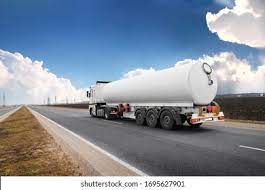In a world characterized by rapid change and evolving demands, flexibility has become a cornerstone of success across various industries. Nowhere is this more evident than in the energy sector, where the ability to adapt quickly to shifting needs and circumstances is paramount. Fuel delivery services have emerged as a key player in this landscape, offering a solution that combines convenience, efficiency, and adaptability to meet the diverse energy requirements of businesses and consumers alike. One of the primary drivers behind the rise of fuel delivery services is the increasing complexity of energy demands. With advancements in technology and changes in consumer behavior, traditional energy supply chains are facing new challenges. Businesses operating in remote locations or temporary job sites, for example, require a reliable source of fuel to power their operations without the logistical burden of transporting fuel themselves. Similarly, consumers are seeking convenient alternatives to traditional gas stations, especially in urban areas where access and convenience are at a premium.

Fuel delivery services address these needs by offering on-demand access to a variety of fuel types, including gasoline, diesel, propane, and even electric charging. By leveraging technology such as mobile apps and GPS tracking, these services can quickly dispatch fuel trucks to any location, eliminating the need for customers to travel to a fixed refueling point. This not only saves time and money but also reduces emissions by minimizing unnecessary vehicle trips. Another key benefit of fuel delivery services is their ability to scale according to demand. Whether it is a small business with fluctuating energy requirements or a large-scale construction project that needs a steady supply of fuel, these services can adjust their operations to meet the needs of their customers. This scalability ensures that businesses can maintain continuity in their operations without having to worry about disruptions due to fuel shortages or logistical constraints. By optimizing delivery routes and using efficient fueling technologies, these services can minimize their carbon footprint and reduce emissions compared to traditional refueling methods. Additionally, some providers offer alternative fuels such as biodiesel or renewable diesel, further reducing the environmental impact of energy consumption.
Furthermore, fort worth fuel transport company play a crucial role in promoting sustainability and environmental stewardship. In addition to their operational benefits, fuel delivery services also offer financial advantages for businesses and consumers. By outsourcing their fueling needs to a third-party provider, businesses can eliminate the costs associated with maintaining their own fueling infrastructure, such as storage tanks and dispensing equipment. Similarly, consumers can take advantage of competitive pricing and flexible payment options offered by fuel delivery services, allowing them to manage their energy expenses more effectively. Looking ahead, the future of fuel delivery services is poised for further innovation and expansion. Advances in autonomous vehicle technology, for example, could enable the development of unmanned fueling drones or robotic delivery vehicles, further enhancing the speed and efficiency of fuel delivery operations. Similarly, the growing interest in renewable energy sources such as hydrogen and biofuels presents new opportunities for fuel delivery services to diversify their offerings and support the transition to a more sustainable energy future.


